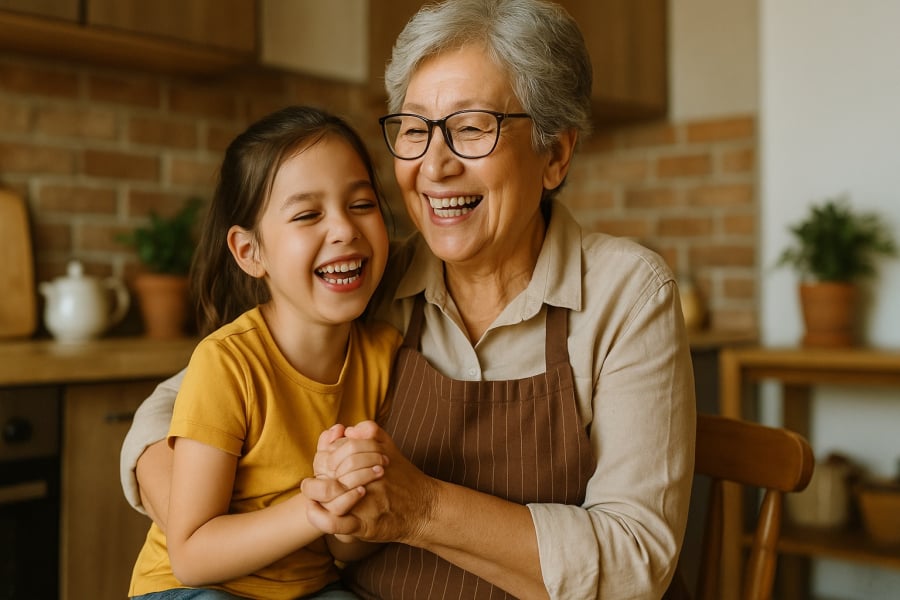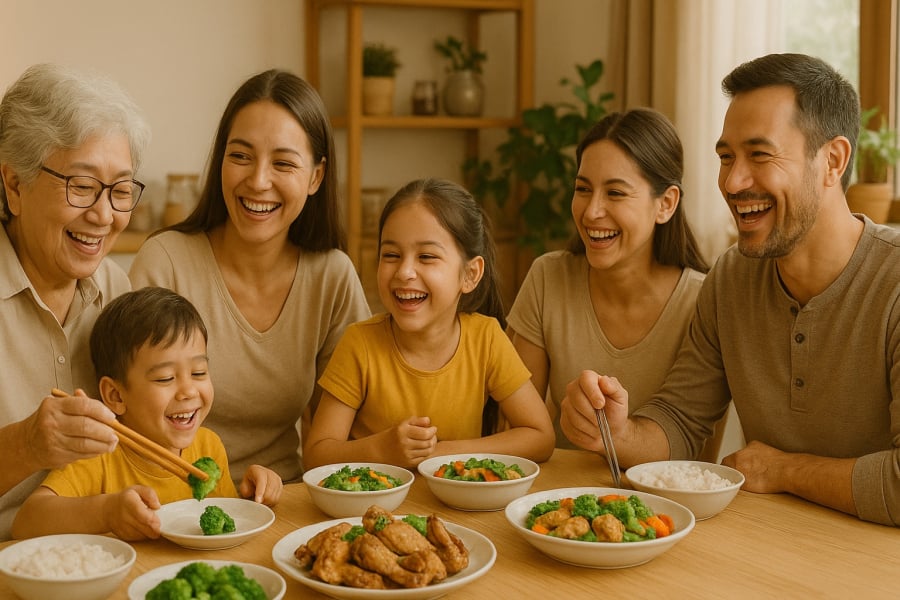Why Is This Question Important?
Many parents have likely wondered: “Is my child closer to their paternal or maternal grandparents?” This question isn’t merely a curiosity; it often evokes mixed emotions. A mother may feel delighted seeing her little girl hug her maternal grandmother tightly, but her heart might also twinge if her child seems distant from their paternal grandmother. Fathers, too, sometimes question whether their son favors his paternal grandparents.
This isn’t just about family dynamics; it reflects deep-seated cultural values in East Asian societies. So, why is the relationship between grandchildren and grandparents so important, and what does science have to say about it?
Parental Psychology When Children Are Closer to One Set of Grandparents
As a mother myself, I understand the complex emotions that arise when your child seems closer to one set of grandparents. While it’s heartwarming to see your parent being loved by your child, there’s also a worry that the other set of grandparents might feel left out. Most parents wish for their children to balance their affections between both sides of the family, so no one feels “cheated” or neglected.
Dr. Nguyen Thi My Loc, a renowned educational psychologist, emphasized in an interview with VnExpress that “the bond between grandchildren and grandparents depends not only on natural affection but also greatly on the time spent together and the parenting styles of both families.” This explains why the relationship between grandchildren and grandparents is never a simple matter.

The Important Role of Grandparents in a Child’s Development
There’s no denying the significant role grandparents play in shaping a child’s character and soul. Bedtime stories, delicious traditional meals, and a patient listening ear—all contribute to a memorable childhood. Grandparents are not just caregivers; they are cultural bridges that help grandchildren understand their roots and family heritage.
In modern society, with parents often busy at work, grandparents become a solid emotional anchor for their grandchildren.
Factors Influencing the Grandparent-Grandchild Relationship
Time Spent Caring and Interacting
One of the most critical factors determining the closeness between grandchildren and grandparents is time. If a maternal grandmother lives nearby and frequently cares for her grandchild, the child is likely to develop a stronger bond with her. Conversely, if the paternal grandmother has fewer opportunities to meet and interact, the relationship may become more distant.
Gender Differences Between Paternal and Maternal Grandmothers
Several studies indicate that granddaughters tend to be closer to their maternal grandmothers, while grandsons more easily connect with their paternal grandmothers. This could stem from shared interests or communication styles.
Influence of East Asian Culture: The Role of the Paternal Side
In Vietnamese culture, the traditional family structure places significant importance on the paternal side. However, in reality, maternal grandmothers often take on more childcare responsibilities, especially during the early years of a child’s life. This leads to grandchildren developing a closer bond with their maternal grandmother.
Differing Parenting Philosophies
Variations in parenting philosophies between the two sets of grandparents can also influence the relationship. For instance, a maternal grandmother might be more permissive and indulgent with her grandchildren, while the paternal grandmother may be stricter. This can cause grandchildren to feel more comfortable with one side.

What Does Science Say?
Scientists have offered intriguing explanations for the grandparent-grandchild dynamic. According to research by the University of Oxford, children often have a stronger genetic link to their maternal grandmother, as her genes comprise a higher proportion of their DNA. This sheds light on why many children tend to be closer to their maternal grandmother.
Dr. Sarah Hrdy, a prominent anthropologist, proposed the “grandmother hypothesis.” This theory suggests that maternal grandmothers typically invest more time and energy in caring for their grandchildren, aiming to protect their genetic lineage. This theory aligns perfectly with the reality of many Vietnamese families.
A practical survey in Vietnam also revealed that approximately 60% of children under five years old are closer to their maternal grandmother, while only 40% share a stronger bond with their paternal grandmother. These results were published in Vietnamnet in 2022.
What Parents Should Keep in Mind
- Emotional Balance: Parents should strive to create opportunities for their children to interact regularly with both sets of grandparents. Ensure your child doesn’t feel biased toward or distant from either side.
- Avoid Imposing Roles: Each grandparent has their unique way of expressing love, and what matters is that your child receives sincere affection from both sides.
- Encourage Positive Bonding: Organize family activities like cooking or camping trips involving both sets of grandparents. This fosters a sense of unity and love.
Conclusion
Ultimately, whether a child is closer to their paternal or maternal grandparents doesn’t solely depend on genetics or gender; it stems from love, time spent together, and genuine connection. As parents, we must recognize that each relationship is precious and unique in its own right.
Let your children savor the invaluable love from both sides of the family. Love is never excessive, and the beautiful memories they forge with their grandparents will forever be cherished.





































